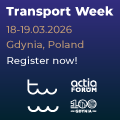Makings of a super hub: A tale of two cities of Shanghai and Singapore
2012 05 10
- Details
WHAT makes a top super hub port can be found in the growth of in different stories Shanghai and Singapore, according to analysis by the UK's Port Strategy.
The key to a super hub in the Far East in both cases is the intra-Asia transshipment trade, as intra-Asia surpasses transpacific and Asia-Europe by box volume, at a time when market is depressed by economic slowdowns.
Shanghai's widening margin is due to its successes in capturing high growth intra-Asia transshipments, said the report.
Said Drewry top analyst Neil Davidson: "You don't really see many small transshipment ports. It's a high intensity operation, and the speed of handling really needs to be high. Quick turnarounds require a high-tech approach."
Thus, technology is key to Singapore's streamlined future: last year, PSA Corp launched a Research and Development fund to look into automated systems and optimisation programmes for its container ports, in Singapore and around the world
The Shanghai International Port Group (SIPG) counts on its Yangshan Deepwater Port with its 15 metres alongside lying 50 kilometres from the old port of Waigaoqiao and which can now handle 13,000 TEU vessels.
More than anything else, says the report, Yangshan Deep Water Port's location is excellent to capture transhipments, becoming a hub and processing port for coastal cargo, which includes volumes from the old port and well as freight from nearby logistics parks.
The Phase 2 expansion includes private port operators AP Moller's APM Terminals and Hong Kong's Hutchison Port Holdings. And unlike other jurisdictions, labour availability and work rules are not constraints.
"It's possible to be highly advanced, but not completely automated. The ports can have the latest kit, sensor capabilities, anti-sway or driver assisted gear, but not go the fully unmanned route," said Mr Davidson.
This is contrasted with Singapore, a long-time transshipment specialist, where space is at premium, though its location makes it ideal for hub and spoke operations as well as mainline handoffs.
Unlike Shanghai, port owner PSA (controlled by the state's Temasek Holdings sovereign investment fund) has built world class information connectivity around the port.
Consultant John Corley at CH2M Hill, told Port Strategy that planners in Singapore have begun crafting a long term plan, with some thinking about a possible relocation of the port as they implement the next generation of facilities.
Technology is very much a part of Singapore's streamlined future, he said. Last year, PSA Corp launched a Research and Development fund to look into automated systems and optimisation programs for its container ports, in Singapore and around the world.
Source Shipping Gazette - Daily Shipping News
The magazine SEA has been published since 1935
International business magazine JŪRA MOPE SEA has been published since 1999
The first magazine in Eurasia in the four languages: English, Chinese, Russian and Lithuanian
|
|





.jpg)





